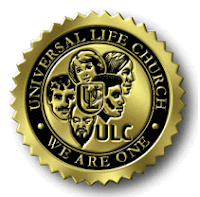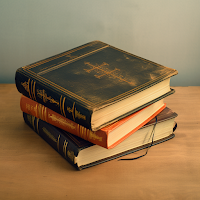It's likely that you've come across discussions about the ongoing schism in the United Methodist Church in recent months. This division is not entirely surprising when we consider the history of Protestantism. After all, the multitude of Protestant denominations we have today did not emerge from perfect harmony! However, did you know that even the oldest denomination offering free and lifelong ordination has experienced its own splits? The Universal Life tradition currently has two major divisions, along with several smaller splinter groups.
Determining the exact number of smaller organizations claiming the Universal Life Church name but operating independently from the headquarters in Modesto, California, is a challenging task. Some of these groups may have started as chartered congregations before deciding to pursue their own paths. While internet searches do reveal the existence of these smaller branches, quantifying their numbers remains difficult due to uncertainties surrounding their current activity status. Additionally, there is no centralized list available that I am aware of. However, it is important to note that a prominent competitor in this space has emerged—the ULC Monastery.
In 1995, Reverend Dan Zimmerman, a ULC minister, established a website for his congregation called Universal Life Church/ULC Monastery, Inc., which was based in Tucson, Arizona. Reverend Zimmerman sought authorization to accept ordination requests through his website and forward them to the ULC headquarters, enabling individuals to be ordained by our church through this online channel. Authorization was granted, especially since the ULC headquarters did not have its own website at the time. Additionally, Reverend Kirby Hensley, a key figure in the Universal Life Church, emphasized the importance of ULC ministers ordaining others upon request.
In 2005, Zimmerman asked one of his members to assist in managing part of the website from Seattle, Washington. However, an internal dispute arose in 2006, prompting Brother Dan to take responsibility and close his site on August 1st of that year. Consequently, the ULC headquarters revoked the authorization for online ordination requests. Following this, the Seattle group executed what can be seen as a hostile takeover of the Monastery website and transformed it into themonastery.org. They now refer to themselves as the Universal Life Church Monastery Storehouse, Inc. This organization, operating under the name "Universal Life Church Ministries," although still using the Monastery name, is separate and not affiliated with the original Universal Life Church headquartered in Modesto, California.
If you were ordained by the Universal Life Church before 2006 and contact the Monastery, they will inform you that due to a database change, they do not have access to ordinations prior to that year. However, they will issue a replacement credential based on the date you provide, with a notation at the bottom indicating that the ordination was allegedly "renewed." From a legal standpoint, this becomes the official ordination date for the Universal Life Church Ministries since they did not have records of the Modesto-ordained minister prior to that date. However, those familiar with the Universal Life Church as Reverend Kirby J. Hensley presented it would recognize that ordination is intended to be lifelong, eliminating the need for any "renewals."
Technically speaking, there was indeed a database change in 2006, but it should be noted that this was a result of establishing a new organization not associated with the original Universal Life Church. It appears deceptive to me that the ULCM does not provide transparent information about these developments. Furthermore, over the years, the Monastery has engaged in a purchasing spree, acquiring and utilizing numerous domains incorporating the Universal Life Church name or related terms, including "getordained.com." Some of these domains are associated with independent websites that communicate with the Monastery behind the scenes while appearing slightly different on the front end. Others simply redirect to one of the ULCM sites. On the other hand, the only domain directly connected to the ULC headquarters is ulchq.com.
To clarify, ordinations offered through the Universal Life Church Ministries/Universal Life Church Monastery are still valid for legally recognized weddings. If you were ordained through this branch of the Universal Life Church, you are indeed ordained—just not by the Universal Life Church founded by Reverend Kirby J. Hensley. In practice, this distinction may not matter to you. However, it is worth considering whether you wish to support such an organization. Ultimately, the decision is yours to make.
Unfortunately, the Universal Life Church international headquarters seems to have been lost in the online shuffle, partly due to the Monastery's ownership and use of numerous domains, thereby dominating search results. To my knowledge, the Universal Life Church in Modesto does not engage in online advertising. Furthermore, the official website is outdated and riddled with technical issues. The store displays items as out of stock even when they are not, and there is no updated information about current events. Additionally, the page navigation at the top behaves oddly, necessitating the use of page links in the footer to navigate the site.
There is a page at ULC.net that was previously authorized to provide official ULC courses, but that authorization is no longer in effect. Other materials are available through that website, but unfortunately, reports indicate that these orders are not being fulfilled. The ULC headquarters has received calls from individuals who ordered through that site and have been waiting for their orders for months. Since it is a separate site and the store is not affiliated with the ULC headquarters, there is little they can do to resolve these issues.
In conclusion, religious divisions can occur even among mail-order ministries and online ordination denominations. From my experience, these divisions often arise due to personal conflicts and struggles for control rather than disagreements over doctrine and beliefs. It is truly a lamentable state of affairs.










